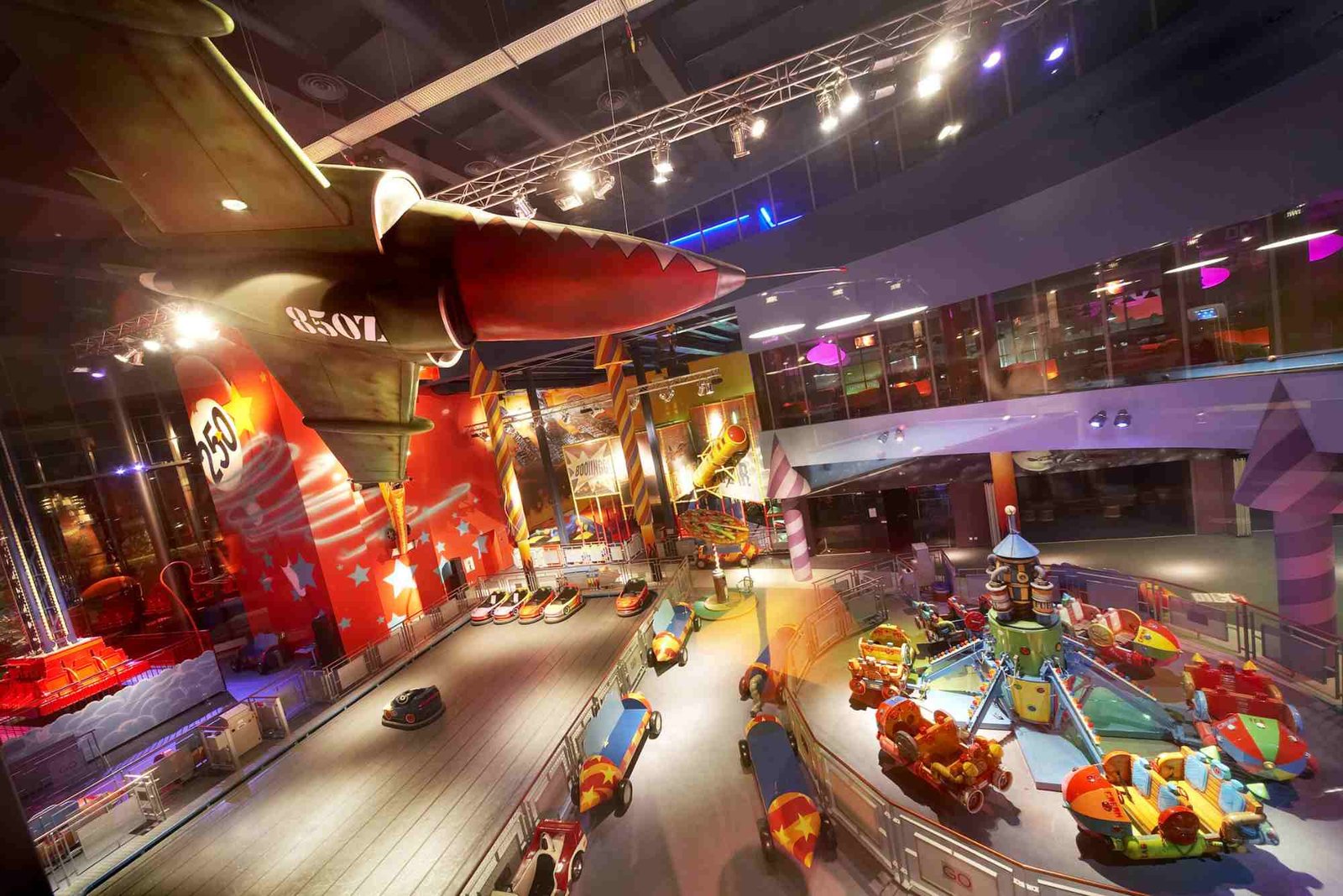Themed Entertainment: A Complete Guide to Attractions & Experiences
Themed entertainment has transformed how people experience leisure, offering immersive worlds where fantasy, technology, and creativity converge. From iconic theme parks to interactive exhibitions, themed entertainment brings stories to life in unforgettable ways. This guide dives into the types of themed entertainment, key industry trends, and insights into the future of this ever-evolving industry.
What is Themed Entertainment?
Themed entertainment refers to immersive attractions and experiences designed around a particular theme or story. These can include amusement parks, themed restaurants, live shows, interactive exhibits, and even virtual reality environments. Themed entertainment focuses on creating emotional and memorable experiences for visitors through storytelling, design, and cutting-edge technology.
Types of Themed Entertainment
Theme Parks
- Examples: Disneyland, Universal Studios
- Theme parks offer expansive worlds that transport visitors into unique realms through thrilling rides, attractions, and themed areas. Each attraction is meticulously designed to support an overarching theme, whether based on popular movies, fantasy worlds, or historical settings.
Water Parks
- Examples: Aquatica, Yas Waterworld
- Water parks focus on water-based attractions like slides, lazy rivers, and wave pools. Many water parks incorporate themes and story elements, turning aquatic fun into an immersive experience.
Museums & Exhibitions
- Examples: The Louvre, American Museum of Natural History
- Modern museums increasingly utilize themed storytelling and interactive displays. Specialized exhibitions can include virtual or augmented reality elements, allowing visitors to engage deeply with art, science, or history.
Live Shows & Theatrical Experiences
- Examples: Cirque du Soleil, The Lion King on Broadway
- Live shows, including theatrical performances and concert series, bring themed entertainment to life. Productions incorporate storytelling, music, costumes, and set design to captivate audiences and create immersive storytelling.
Themed Dining Experiences
- Examples: Medieval Times, Rainforest Café
- Themed restaurants create memorable dining experiences by transporting guests to unique settings. From décor and food to costumes and ambiance, every detail is crafted to fit the theme.
Virtual & Augmented Reality Experiences
- Examples: VR Worlds, Pokémon Go
- Technology-driven experiences using VR or AR allow participants to enter entirely digital worlds or interact with digital elements in the real world. VR theme parks and location-based AR games are some examples of this evolving sector.
Key Trends in Themed Entertainment
Immersive Storytelling
As audiences seek deeper connections, themed attractions are increasingly using complex storylines and backstories to engage visitors.
Integration of Technology
Advanced tech, including AI, VR, and AR, plays a critical role in enhancing themed entertainment, making experiences interactive and personalized.
Sustainability Initiatives
As environmental awareness grows, many venues are adopting eco-friendly practices, from sustainable building materials to energy-efficient designs.
Inclusivity and Accessibility
Industry leaders are focused on making experiences accessible for all, with adaptive technologies, accessible designs, and inclusive narratives.
Crossover with Popular Media
Themed entertainment often intersects with movies, TV shows, and gaming. Collaborations between entertainment companies and themed experience designers allow fans to interact directly with beloved media worlds.
The Future of Themed Entertainment
Themed entertainment will likely become even more immersive, leveraging AI and personalizing visitor experiences. Technologies like haptic feedback, mixed reality, and AI-driven characters will make experiences more dynamic and responsive. Additionally, themed entertainment is expected to expand into digital spaces, such as the metaverse, offering entirely new ways to engage with interactive stories.
FAQs About Themed Entertainment
Q1: What defines a themed entertainment experience?
A: It’s an attraction or venue designed around a particular theme or story to offer immersive, memorable experiences.
Q2: What’s the difference between a theme park and a water park?
A: A theme park includes various rides and attractions, while a water park focuses specifically on water-based activities.
Q3: How does technology enhance themed entertainment?
A: Technology, like VR and AR, adds interactive elements that deepen engagement and personalization.
Q4: What’s the role of storytelling in themed entertainment?
A: Storytelling creates a narrative framework that connects visitors emotionally, making the experience more meaningful.
Q5: Is themed entertainment accessible to all?
A: Many venues are implementing inclusive and accessible designs to ensure everyone can enjoy these experiences.
Themed entertainment continues to revolutionize how people experience leisure, and with new technology and creativity, its future looks more exciting than ever.




